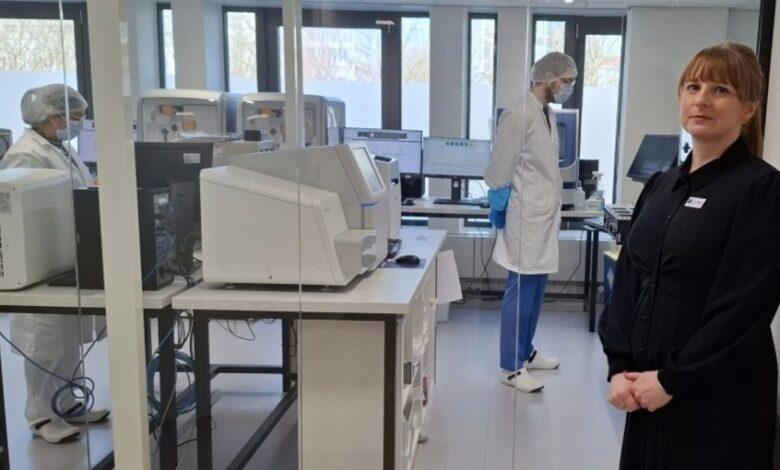Lucy Johnson, Head of the ICMP DNA Laboratory, spoke about the identification of missing persons during the war

Identification of those missing during the war is one of the most important humanitarian problems facing Ukraine. Russia’s full-scale invasion left thousands of Ukrainians missing, and many bodies of the dead remain unidentified. For families who have lost contact with their loved ones, the unknown is a terrible test. That is why accurate and quick identification of the dead is not only a matter of science, but also an act of humanity and justice.
The International Commission on Missing Persons (ICMS), based in The Hague, Netherlands, plays a significant role in this process. Over the past year and a half, her DNA laboratory has undergone significant changes in order to provide even more assistance to Ukraine in this critically important matter. By in words the head of the laboratory, Lucy Johnson, the number of staff doubled, 20 scientists from different countries of the world joined the team. The laboratory has expanded significantly, receiving new premises, modern equipment and additional funding from international donors. All these changes make it possible to process more samples and reduce the waiting time for results.
“Over the past 18 months, we’ve recruited people and doubled our team. Now it has 20 scientists from all over the world. We have expanded the lab significantly and what used to be an office is now part of the lab. The entire first floor actually consists of six laboratories, each of which has its own specialized equipment. We have upgraded our equipment and were able to purchase new tools thanks to the generous donations of our donors.” she emphasized.
As Johnson noted, after the Russian invasion, the ICRC actively cooperates with Ukraine. Their assistance includes both direct processing of biological materials and training of Ukrainian specialists. The laboratory receives two types of samples: the remains of the deceased and biological material from relatives, such as swabs from the inside of the cheek or hair. This allows genetic profiles to be created, which are then compared to establish identity. Additional personnel and new equipment allow for the analysis of more such samples and to do so more quickly, which is critical in a wartime environment.
One of the main challenges in this work is the condition of the remains. According to Lucy Johnson, many of the bodies were badly damaged – burned or badly charred. This complicates the process of DNA extraction, as the high temperature destroys the genetic material. In such cases, the laboratory uses complex methods that include several stages of testing. If one method does not provide enough information, additional approaches are used to obtain the most accurate result. Often, to establish an identity, two or three different tests have to be done so that the obtained DNA fragments can be compared with the database of missing relatives.
“In the context of Ukraine, where we receive remains, unfortunately, many of them were burned or heavily charred. This is a challenge when it comes to DNA, because heat damages the genetic material and we don’t know what temperature the bones were exposed to and for how long. Therefore, we always have to go through various processes in order to get as much information as possible from the obtained residues, that is, genetic information. Sometimes this means we have to do two or three different tests to build a complete picture and provide enough information for further comparisons.” – noted the expert.
Johnson says that in addition to working with biological materials, the ICZB is also engaged in training Ukrainian experts. In cooperation with the relevant authorities in Ukraine, the commission launched a two-year training program that covers all stages of DNA testing. This will allow Ukraine to develop its own expertise in this area and in the future to improve its own capabilities in identifying missing persons. Ukrainian specialists regularly undergo internships in The Hague, and ICZB representatives come to Ukraine for practical training. Such cooperation not only accelerates the identification process, but also creates a basis for the sustainable work of Ukrainian laboratories in this field.
Accurate identification of the dead is of great importance not only to families searching for their loved ones, but also to society in general. It allows to honor the memory of the dead, provides an opportunity for their relatives to say goodbye and receive an official confirmation of death. In addition, such work is important for legal procedures, because identifying the dead can play a role in the investigation of war crimes and the collection of evidence of violations of international law.
The war in Ukraine continues, and the issue of identifying the missing remains one of the most acute. Thanks to international support and new technologies, this process becomes faster and more accurate. However, it is important that Ukraine develops its own capacity in this area, because even after the end of hostilities, the work of identifying war victims will continue for many years. That is why initiatives like cooperation with ICRC are not only relevant, but also critically necessary to restore justice and memory of the dead.





